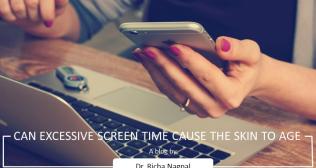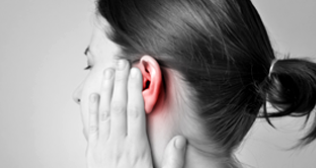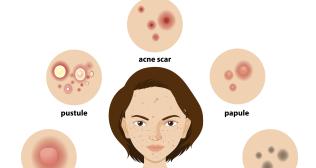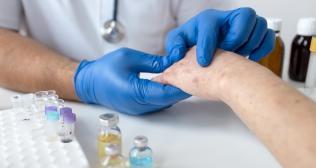
Stress Hives: Are They Real and What Can You Do About Them?
The connection between our minds and our bodies is incredibly powerful. We’ve all felt our heart race before a big presentation or our stomach churn with nerves. But can our emotional state, particularly stress, actually cause a physical reaction on our skin? For many people who suddenly break out in itchy, red welts during a difficult time, the answer is a resounding yes. This phenomenon is known as stress hives.
While it might be easy to dismiss a rash as a coincidence, the link between hives and stress is a real, recognized medical condition. Understanding why this happens is the first step toward finding relief and managing this frustrating response. This guide will explore the reality of the stress rash, explain why it occurs, and provide effective strategies for how to get rid of it.
What Are Stress Hives?
First, it’s important to understand what hives are. Medically known as urticaria, hives are raised, itchy welts on the skin. They can vary in size, from small spots to large, blotchy patches, and they can appear anywhere on the body. Stress hives are not a different type of hive; they are simply hives for which emotional stress is the primary trigger.
A stress rash typically looks identical to hives caused by an allergic reaction. The welts are often red or skin-colored, swollen, and intensely itchy. A key characteristic is that individual hives tend to come and go, often disappearing from one spot and reappearing in another within a few hours. This rash caused by stress is a direct physiological response to what’s happening in your mind.
The Mind-Skin Connection: Why Stress Causes Hives
The link between stress and your skin is not just in your head; it’s a complex biological process. When you experience emotional or psychological stress, your body goes into "fight-or-flight" mode. This triggers the release of a cascade of stress hormones, including cortisol and adrenaline.
This hormonal surge can put your immune system on high alert. In some people, this overactive immune response causes certain cells, known as mast cells, to release histamine and other inflammatory chemicals into the skin. Histamine is the same chemical released during an allergic reaction. It causes blood vessels to leak fluid, which then pools under the skin to create the characteristic swelling, redness, and intense itching of hives. So, while you aren't allergic to stress itself, your body's response to stress can mimic an allergic reaction on your skin.
Is It a Stress Rash or Something Else?
Because hives can be caused by many different triggers, it can sometimes be difficult to pinpoint the cause. Common triggers for hives include:
- Allergies: To foods (like nuts, shellfish, or eggs), medications, insect bites, or latex.
- Physical Triggers: Exposure to sunlight, cold, pressure, or even exercise.
- Infections: Both viral and bacterial infections can sometimes cause hives.
The key to identifying a rash caused by stress is context. If you notice that your hives consistently appear during or immediately after periods of high anxiety, tight deadlines at work, or significant emotional events, and you've ruled out other new exposures, stress is a very likely culprit.
How to Get Rid of Stress Hives: A Two-Part Approach
Finding relief involves a two-pronged strategy: treating the immediate, itchy rash and, more importantly, managing the underlying stress that’s causing it. Knowing how to get rid of stress hives means addressing both the symptom and the source.
Part 1: Immediate Relief for the Rash
When you are dealing with an active breakout, your primary goal is to soothe the skin and reduce the itching.
- Over-the-Counter Antihistamines: This is the first line of defense. Non-drowsy antihistamines work by blocking the effects of the histamine your body has released, which helps to reduce the swelling and relieve the itch.
- Cool Compresses: Applying a cool, damp cloth or an ice pack wrapped in a towel to the affected areas can provide immediate soothing relief from the heat and itching.
- Avoid Scratching: As difficult as it may be, do not scratch the hives. Scratching can further irritate the skin, worsen the rash, and potentially lead to skin damage or a secondary infection.
- Take a Soothing Bath: An oatmeal bath or a bath with a bit of baking soda can help calm inflamed skin. Use lukewarm, not hot, water.
- Wear Loose, Comfortable Clothing: Tight clothes made of rough fabrics can rub against the hives and make them feel worse. Opt for soft, breathable materials like cotton.
Part 2: Long-Term Prevention Through Stress Management
The most effective way to learn how to get rid of stress hives for good is to manage your body's response to stress.
- Identify Your Stressors: Take some time to think about what is causing your stress. Is it work, family, finances? Recognizing your triggers is the first step to developing coping strategies.
- Practice Mindfulness and Meditation: Regular meditation has been proven to calm the nervous system and lower stress hormone levels. Even 10 minutes a day can make a difference.
- Incorporate Deep Breathing Exercises: When you feel stressed, practice slow, deep belly breathing. Inhale slowly through your nose for four counts, hold for four counts, and exhale slowly through your mouth for six counts. This can quickly calm the fight-or-flight response.
- Get Regular Physical Activity: Exercise is one of the most powerful stress relievers. Activities like walking, jogging, yoga, or swimming can help burn off stress hormones and boost mood-enhancing endorphins.
- Prioritize Sleep: A lack of sleep can significantly increase stress levels. Aim for 7-9 hours of quality sleep per night by establishing a consistent and relaxing bedtime routine.
When to See a Doctor
While most cases of stress hives can be managed at home, you should consult a doctor if:
- The hives are severe or cover a large part of your body.
- They last for more than a few days or keep coming back frequently.
- Over-the-counter antihistamines are not providing relief.
- You experience swelling of your lips, tongue, or throat, or have difficulty breathing. This is a sign of a severe allergic reaction called anaphylaxis and requires immediate emergency medical attention.
A doctor can help confirm that stress is the trigger, rule out other potential causes, and prescribe stronger medications, such as corticosteroids, if needed.
Taking Control of Your Body's Response
Stress hives are a powerful reminder that our emotional health and physical health are deeply intertwined. They are a real, physical signal from your body that your stress levels are too high. By learning to soothe the immediate symptoms and, more importantly, by adopting long-term strategies to manage stress, you can take control of this response and reduce the impact it has on your skin and your life.
Frequently Asked Questions
1. How long do stress hives typically last?
Ans. An individual hive usually lasts for less than 24 hours, but a breakout can last for several days, with new hives appearing as old ones fade. Chronic hives can last for six weeks or more.
2. Are stress hives contagious?
Ans. No, hives are not contagious. They are an internal reaction and cannot be spread from person to person.
3. Can anxiety cause itching all over my body even without a rash?
Ans. Yes, anxiety and stress can cause a sensation of itching (pruritus) even without any visible hives or rash. This is due to the effect of stress on your nerve endings.
4. What is the difference between stress hives and a heat rash?
Ans. A heat rash is caused by blocked sweat ducts and typically looks like small red pimples or blisters in areas where you sweat. Hives are larger, raised welts that can appear anywhere.
5. Can I prevent stress hives completely?
Ans. While it may not be possible to prevent them entirely, especially during very stressful times, learning and practicing effective stress management techniques can dramatically reduce their frequency and severity.


















